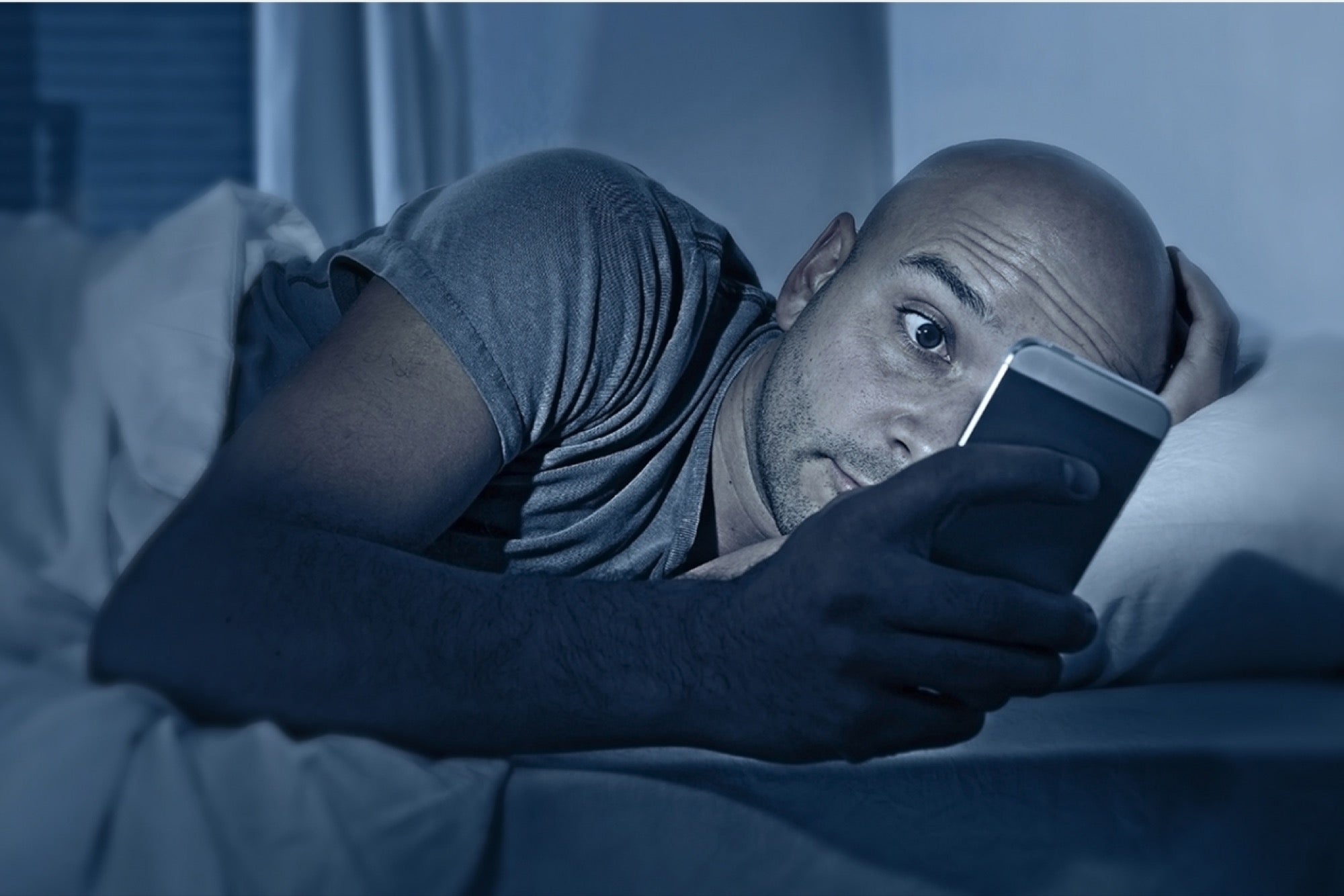Why Your Sleep Tracker Might Make It Harder to Get the Rest You Need Fixating on device data can actually lead to more anxiety and sleepless nights.
By Nina Zipkin

If you're not sleeping, it's a sign that something isn't right. It makes sense that you would want to do everything you can to get to the bottom of the issue. But it turns out that intensely fixating on why you're up at night can actually make the problem even worse.
A group of researchers from Rush University and Northwestern University in Chicago, Ill., looked at the impact of sleep trackers and wearable tech on the overall well-being of users. What they found was that a quest for perfection with sleep data gleaned from these devices could lead to more anxiety and exhaustion.
Related: 5 Ways to Get Better Sleep Without Sleeping More Hours
"We termed this condition 'orthosomnia,' with 'ortho' meaning straight or correct, and 'somnia' meaning sleep, because patients are preoccupied or concerned with improving or perfecting their wearable sleep data," the researchers explained. "We chose this term because the perfectionist quest to achieve perfect sleep is similar to the unhealthy preoccupation with healthy eating, termed orthorexia."
The researchers looked at the case studies of three patients.The first was a 40-year-old man who complained of light, easily interrupted sleep that he thought was linked to job stress. The second was a 27-year-old woman who had trouble falling and staying asleep due to restless leg syndrome. The third was a 69-year-old man who was a light sleeper who had been been diagnosed with obstructive sleep apnea (OSA) and was being treated through a continuous positive airway pressure (CPAP) machine.
Related: Sleep In and Make Millions: Why You Don't Need to Wake Up at 5 A.M.
What they had in common was that they all had utilized sleep trackers to get to better understand the reason behind their restless nights. And the researchers found that even once they had results to go on from a laboratory study, the perception of the kind of sleep they had based on what the devices told them was tough to change.
"A lack of transparency in the device algorithms makes it impossible to know how accurate they are even under the best circumstances," they concluded. "All three patients were spending excessive time in bed in attempts to increase the sleep duration reported by the sleep tracker, which may have exacerbated their insomnia. Given that these devices tend to overestimate sleep, they may have served to reinforce poor sleep habits by encouraging extending time in bed."
Do you use a sleep tracker? If so, what do you make of this study? Will you stop tracking your sleep? Let us know in the comments.












